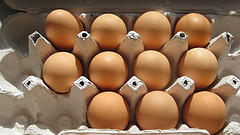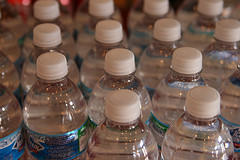In our throwaway culture, the habit of mindlessly tossing things into the trash can be a tough one to break. However, many everyday items can be easily repurposed, helping you to reduce household waste—while also helping you to save some money in the process! Here's how to breathe new life into old, everyday household items.
1) Sharpen scissors with aluminum foil. Finally, a use for those leftover scraps of tin foil! Simply fold a piece of tin foil in half several times, then snip through it with scissors to sharpen and hone the blades.
2) Portion and store food in old egg cartons. Clean a Styrofoam egg carton to repurpose as frozen food storage. The carton's compartments make portioning easy, especially for make-ahead recipes such as cookie dough and meatballs. Alternatively, you can use the egg cartons to store small odds and ends, like thumb tacks, miscellaneous screws and nuts, paper clips—even smaller holiday ornaments!
3) Use paper towel tubes to organize hair bands. Wrap elastics around the tube to keep your hair accessories neat and all in one place. Paper towel tubes can also double as boot trees, which prevent taller boots from flopping over and creasing. Or you can rely on the tubes to corral plastic bags: Simply stuff the bags into the tube.
Reusing Things: 100 Ideas of How to Reuse Commonly Thrown Away Items [Mother Earth News]
Best of 10 Uses for Common Household Products [This Old House]
10 Ways to Rethink Household Items [Real Simple]
10 Ways to Reuse Common Household Items [Wise Bread]


 Equal Housing Opportunity
Equal Housing Opportunity